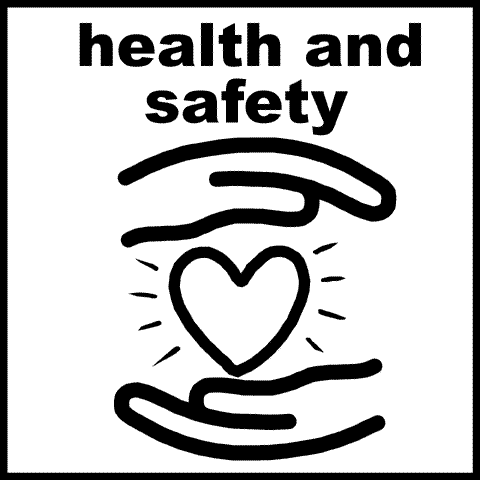Members of the CUPW Vancouver Local:
As 2010 draws to a close and we approach what will very likely be a challenging start to the New Year with the expiration of our contract on January 31st, it seems fitting to reflect upon the current state of health and safety at Canada Post.
The following is the Canada Post Health and Safety Policy:

Canada Post is committed to creating and maintaining a healthy and safe workplace for all employees. Ensuring that employees feel safe and are safe at work is crucial to building a workforce that takes pride in its contribution to our overall success – as individuals and as team members.
Sadly, in reality, this policy seems to be fairly nonexistent in many of our workplaces. As Canada Post employees, we face constant and daily threats to our health, safety and wellbeing while at work. These are just some of the health and safety issues that Canada Post employees in the Vancouver Local have experienced during the past year:
- letter carrier depot restructures that have created longer, heavier routes, where much-needed relay boxes have been removed, resulting in overburdening and injury, and struggles with management and Manulife to have them returned;
- reductions in staffing that have resulted in the overburdening of remaining employees, rotation of duty schedules not being followed, and regular occurrences of forced overtime in certain workplaces that have left employees feeling stressed and tired, thereby increasing the potential for illness and injury;
- an unwillingness from management in some locations to supply hazard reports to employees so that we can report hazards and possibly prevent future accidents and injuries, even though “prevention” is one of the key words that Canada Post likes to use when it comes to health and safety. When hazard reports are available, they are not always responded to in a timely and efficient manner;
- accident investigations are frequently not conducted according to Canada Post’s own guidelines, which state that accident investigations should begin at the accident/incident site no later than 24 hours following notification by employee. These same guidelines also state that a CUPW representative on the Local Joint Health and Safety Committee should be notified immediately following the report of accident or injury, and should attend the accident investigation with the employee. More and more frequently we are hearing that accident investigations, if they are done at all, are not being done in accordance with these guidelines;
- employees being pressured to come in to work when they are sick, being importuned for taking the sick time that they are entitled to under the current Collective Agreement, and being released, or threatened with release, for incapacity under Article 10.10 of the Collective Agreement;
- regular occurrences of bullying and harassment in the workplace that management seems unwilling to acknowledge or address in an appropriate manner;
- adequate snow tires are not being provided on corporate vehicles, even in areas such as North and West Vancouver, where there is often more snow than other areas, and the terrain is hilly and can be dangerous to drive even in small amounts of snow. Canada Post feels that 2 snow tires on the front of each vehicle should be sufficient; many of those who are actually driving in these conditions disagree;
- most recently, there have been numerous complaints about a new shipping method, deemed safe and acceptable by Canada Post, where, due to a shortage of monotainers, mail is being transported to the processing plants and letter carrier depots in cardboard boxes called “gaylords”. These boxes stand 4 feet high, or 4′ 7″ when they are placed upon a pallet. They are too tall for a worker of average height to load and unload safely, and are often unstable as a result of being heavily overloaded. Management’s idea of problem-solving around this issue is to offer unloading instructions which do nothing to address the actual safety concerns of the employees having to do this work;
- equipment such as extraction fans, eyewash stations, ergo lifts and puncture-resistant gloves are either not maintained or are not provided so that we can do our jobs safely and minimize the risk of injury, because, we are told, there is no money in the budget;
- working conditions progressively deteriorate, problems are ignored, and employees are forced to adapt to a dysfunctional work environment.
The list continues and it is extensive. It can be discouraging when, rather than improvements, we see conditions getting worse as Canada Post continues to use the excuse of the current economic climate as their justification to cut corners when it comes to health and safety. The hypocrisy is glaringly obvious, when we are told, “your health and safety is important to Canada Post”, but then see first-hand just how little importance is placed upon our health and safety.
It becomes apparent that Canada Post is using a “cost-benefit analysis” when it comes to the health and safety of its employees. This is a common practice in corporate decision-making, and what it means is that the cost of maintaining a safe and healthy work environment, where employees truly feel safe and are safe, appears to be greater than the value that Canada Post places on the lives of each and every one of us. With this in mind, those individuals who sit in the Canada Post corporate offices in Ottawa, who are so far removed from the reality of our workfloors, will very likely continue to make decisions around our health and safety that will cost them the least amount of money, and are in the best interests of the Corporation rather than the workers who make this Corporation what it is.
Please remember, as we head into this Christmas Season and the New Year ahead, that we are all significant and important, our lives have great value, and we deserve far better than this.
Peace and Unity,
Wendy Lund
Health and Safety Director
CUPW Vancouver
[email protected]
db/CUPE-3338

